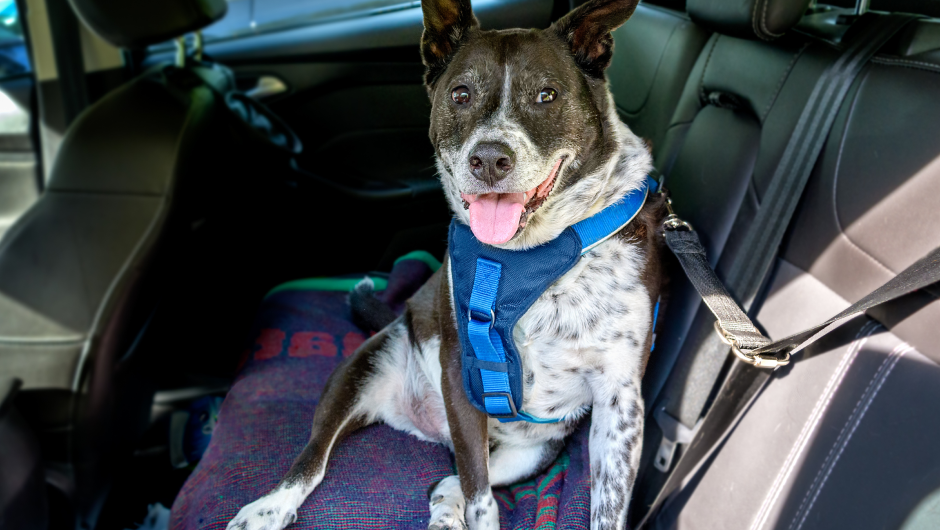Natural Disasters for pets have serious consequences too!
Hurricane season has arrived, and we have all read and seen the havoc wreaked by tornadoes across the Southeastern states. It is important to be prepared for natural disasters for pets and all kinds of emergencies too. The safety of your family depends on preparing a disaster plan, and this includes your pet’s needs, as well. Prior to an emergency, gather information and compile a pet disaster kit. Determine safe rooms in your home, and know your evacuation zone and which county shelters allow pets.
If it’s unsafe for you, it’s unsafe for your pets!
In an emergency, if it is unsafe for you to stay in your home, it is also unsafe for your pets to stay. If you are told to evacuate, do so immediately; never wait until the last minute. Have a list of boarding facilities and veterinarians in your community that shelter animals in an emergency. On your list include friends, relatives, or others outside your area that may let you and your pets stay with them. Also include pet-friendly hotels outside your area on your list. The website, www.petswelcome.com, is a good reference for hotels that accept pets.
Public shelters can also be an option, but only as a last resort!
Public sheltering should be your last option, but is available if needed in disasters for pets. All shelters will allow service animals, but you will need to plan ahead and even call for reservations for family pets once the county announces that a shelter has opened. There are six designated, pet-friendly shelters in Sarasota County and three shelters in Manatee County that allow pets (Please see sidebar below). Realize that these shelters provide a safe refuge, but the pets are kept in a separate area from their owners. You are expected to provide a cage and care for your animal while you are at the shelter, except when winds are over 45 miles per hour, at which time you must stay in the area designated for people. The counties reserve the right to refuse admittance to any animal that poses a risk, especially if the pet owner is not prepared. A pet disaster kit is invaluable if you find yourself in this situation.
What your disaster kit should include:
Start assembling your kit by taking photos of your pets and write their names, identifying marks, rabies tag number and microchip number on the back of their photos, along with your complete contact information. Store the pictures and copies of current vaccination records in a sealed plastic bag in your disaster kit. Ask your vet for written prescriptions to include in the sealed bag if your pet is on critical medications that may need to be refilled elsewhere after an emergency.
The kit also should include the following items:
- A carrier or collapsible cage
- Bedding
- A two-week supply of food in a water-tight container
- A collar, harnesses, and leashes
- Water (one gallon a day for two weeks is equivalent to 14 gallons per pet)
- Disinfectant
- Handy wipes, paper towels, plastic bags for waste
- Latex gloves
- Sturdy, no-spill bowls
- Treats and toys
- A can opener for canned food
- A small litter box
- Disposable pans or liners
- A scoop and an ample supply of litter
- A 14-day supply of medications, including heartworm preventative and flea & tick control products
- Comfort items and a blanket or sheet to cover the crate for privacy
- A muzzle, if necessary
Remember that in a disaster situation, a pet may be disorientated, scared, and not act normal. A pet disaster kit is invaluable even if you stay at home during an emergency. Your pets will be most comfortable and secure in their carriers in a safe area of the home until the storm or crisis has passed. Otherwise they may escape and become injured or lost forever.
Issues in your home to be on the look out for
If you bring your plants indoors before a storm, keep pets away from them, as some plants are poisonous. After a storm or natural disasters for pets, proceed with caution and watch for downed and dangling power lines, broken glass and other debris that could pose a danger to your family and your pets. Always walk pets on a leash until they become reoriented to their homes and yards and all dangers have been cleared. If you are without power and roads are not passable, a disaster kit can provide for your pet’s needs for up to two weeks. Check our blog on toxic household items for more on this subject, right here!
Pet-Friendly Shelters in Our Communities:
Sarasota County
- Brookside Middle School, 3636 S. Shade Ave., Sarasota
- Heron Creek Middle School, 6501 W. Price Blvd., North Port
- North Port High School, 6400 W. Price Blvd., North Port
- Pine view School, 501 Old Venice Road, Osprey
- Riverview High School, 1 Ram Way, Sarasota
- Woodland Middle School, 2700 Panacea Blvd., North Port
Manatee County
- Braden River High School, 6545 State Road 70 East, Bradenton
- Manatee High School, 1 Hurricane Lane, 902 33rd Street Court West, Bradenton
*It’s important to know that not all shelters may be open during an emergency. To determine which shelters have opened, check the “Evacuation & Shelters List” by visiting mapsscgov.net before you leave home.
**Officials for the county report that these shelters will only accept dogs, cats, and birds.

